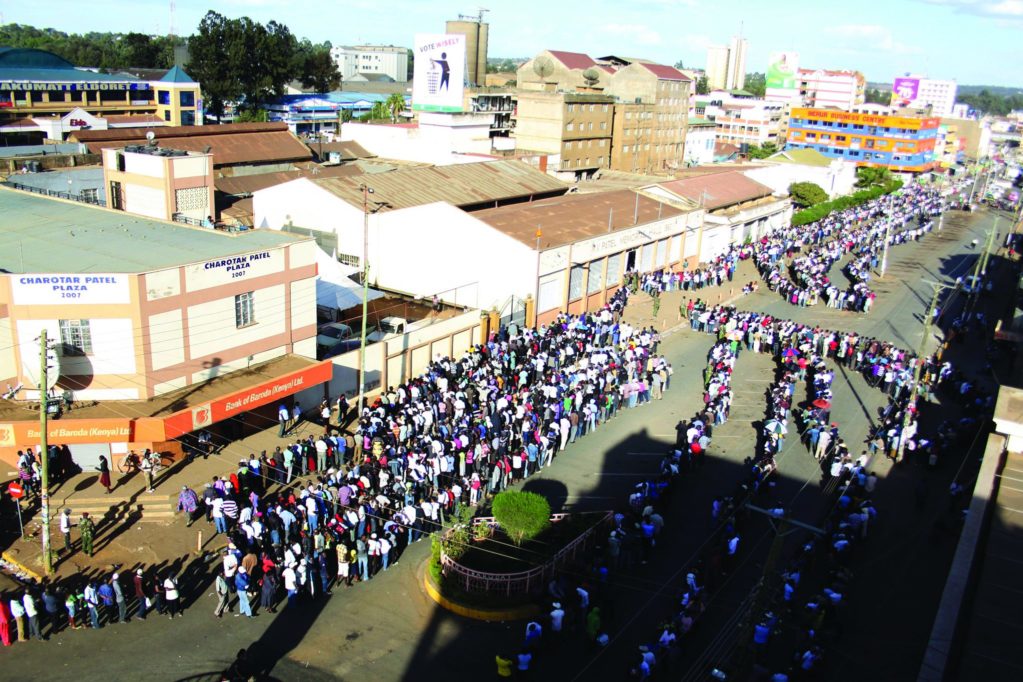The polls were open, business was closed. Fourteen million Kenyans queued up across the country to cast their votes on March 4 in what many feared would be another violent election.
For most entrepreneurs it was far from business as usual. The Monday was declared a public holiday just after month-end when shoppers normally spend fistfuls of their hard-earned shillings. The violence of 2007 was fresh in many minds and for days the capital, Nairobi, was a ghost town.
“I remember very well December 27, 2007. When the problems arose it was just around the 31st of December, we had actually come to work. It was business as usual. Suddenly we had some police officers who came into the store and said we need to shut the store and go home. There is violence coming our way,” says Karim Fazal chairman of Little Red—a Nairobi luxury designer store.
Within the hour, on that fateful December day, a mob clashed with police just outside the store in Nairobi’s Kimathi Street, says Fazal. He was trapped in his store for nearly an hour with his workers, customers and passers-by, who were trying to shelter from the violence.
The unrest spread and flared into ethnic violence that left more than 1,200 people dead and 600,000 homeless. Rioters destroyed property and productivity collapsed. The country’s economy came to a standstill and the GDP growth for 2008 fell to the country’s lowest ever, 1.7%, on the cusp of the world economic crisis.
This time around, Fazal, along with other entrepreneurs, took expensive political risk insurance cover.
“The insurance charged us two shillings for every thousand shillings worth of goods and two shillings for loss of business which I took out for three months,” says Fazal.
At the very least, Kenyan insurance companies banded together to offer cheaper political risk insurance for business.
“Loss of business will not just be prevalent to the first two days, not the day for voting and not the following one. This will carry on until we get the election results out and that the results are accepted by all parties concerned until we see normalcy returning to the business environment,” says Fazal.
Kenya’s Independent Electoral and Boundaries Commission (IEBC) promised free, fair and secure elections. The voting was so, bar violent clashes in Mombasa that claimed 19 lives—including four police officers. The announcement of results, in a two-horse race between presidential candidates Uhuru Kenyatta and Raila Odinga, also proved peaceful.
“There seems to be a lack of security in the CBD, which will then lead to thugs taking advantage of the situation, which has been prevalent in Nairobi in the past few days because of the police being deployed at the polling centers to make sure things are peaceful. So in that way, we felt that there was lack of security,” says Fazal.
It took six hours for Fazal to cast his vote on March 4. His dream: the election of a leader who will bring peace and unity to Kenya; one who will also foster business.
“When you take the insecurity, the weariness and trepidations that we feel pre- and post-elections that should not be the case in this country. I am hoping for the next elections we will not have to look at this ever again,” concludes Fazal.
Millions of Kenyans are likely to agree.
